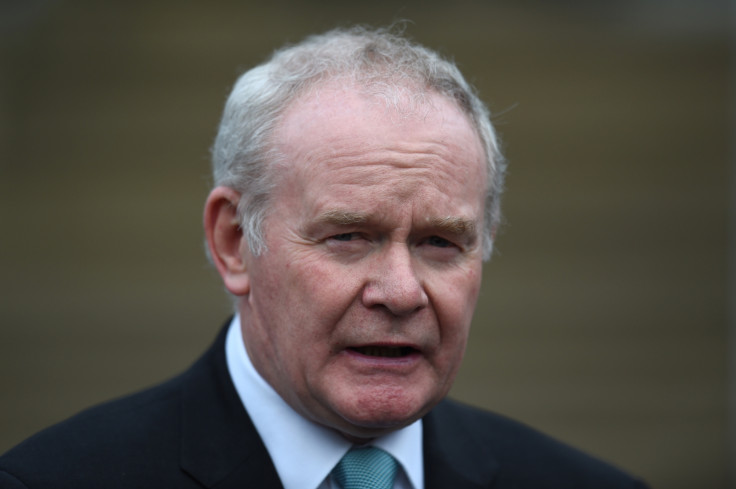Martin McGuinness to quit Stormont to concentrate on recovering from 'very serious illness'
Former IRA commander McGuinness rose to be deputy First Minister in the Northern Ireland Assembly.

Former IRA commander and Deputy First Minister of Northern Ireland Martin McGuinness will not seek re-election to the Northern Ireland Assembly so that he can concentrate on recovering from a "very serious illness."
McGuinness, who stood down as deputy first minister after almost 10 years because of controversy over a renewable energy scheme, has a rare condition called amyloidosis which has left him visibly gaunt in recent weeks. He says he is no longer physically able to carry out his duties and believes it is time for a new generation of Republicans to carry Sinn Fein forward.
McGuinness was second-in-command of the IRA's Derry Brigade in the early 1970s, but says he made the transition to politics in 1974 and later played a key part in the peace process. By 2007 he shared First Minister duties with hardline Loyalist Ian Paisley, with whom he established such a bond, the pair became known as the Chuckle Brothers.
McGuinness stood down due to a dispute over a renewable energy scheme which it is thought could cost taxpayers hundreds of millions of pounds. Sinn Fein had wanted DUP leader Arlene Foster to quit but her refusal means there will be snap elections which McGuinness was expected to stand in.
Now however McGuinness says he can no longer cope with the demands of political life at Stormont, and so Sinn Fein in the north must find a new leader. In a statement published by the Belfast Telegraph McGuinness said: "My obvious health issues are being addressed by a superb team of National Health Service doctors and nurses.
"But I want to be open and honest with my friends and colleagues in Sinn Féin, with the electorate of Foyle and with the wider community beyond my own constituency. I also want to be fair to my family and to the teams of carers who are doing their best to provide me with the treatment I now require to deal with this very serious medical condition which I am very determined to overcome.
"Unfortunately, I am not physically able to continue in my current role and have therefore decided to make way for a new leader. This election is the right time for me to move aside so I will not seek re-election to the Assembly."
Voters in Belfast will be casting their ballots on 2 March after Northern Ireland Secretary James Brokenshire called for new elections. The last sitting day of the 108-member Assembly will be 25 January and it will be dissolved the following day.
© Copyright IBTimes 2024. All rights reserved.






